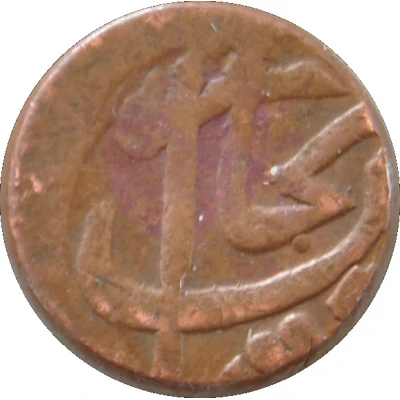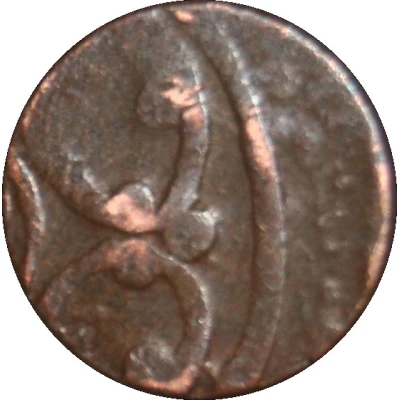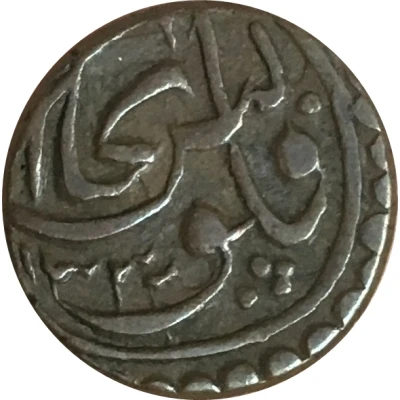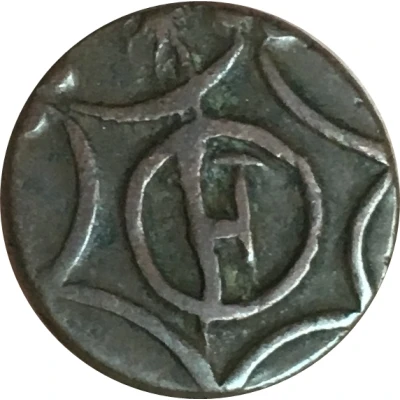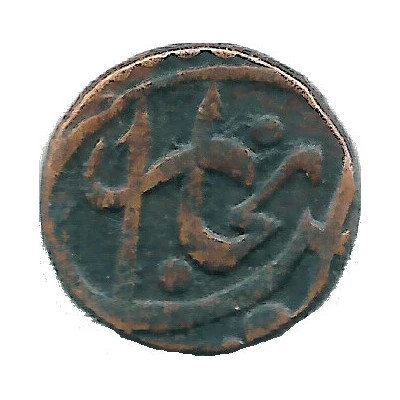
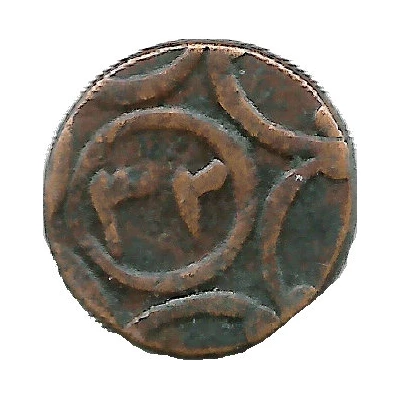

© Serf Media
1⁄32 Tenga - Muhammad Alim Khan bin Abdul-Ahad
| Copper | 2.2 g | 12 mm |
| Issuer | Emirate of Bukhara |
|---|---|
| Emir | Muhammad Alim Khan bin Abdul-Ahad (1911-1920) |
| Type | Standard circulation coin |
| Years | 1329-1333 (1911-1915) |
| Calendar | Islamic (Hijri) |
| Value | 2 Fulus (1⁄32) |
| Currency | Tenga (1801-1920) |
| Composition | Copper |
| Weight | 2.2 g |
| Diameter | 12 mm |
| Shape | Round (irregular) |
| Demonetized | Yes |
| Updated | 2024-10-04 |
| Numista | N#127271 |
|---|---|
| Rarity index | 80% |
Reverse
Numeral 32 within an ornate 6-petal cartouche
Lettering: ٣٢
Translation: 32
Edge
Plain
Comment
Many varieties exist. Diameter varies 12-14mm; the "32" denotes the value 1/32 Tenga (2 Fulus); date can appear below or inside "fulus".Interesting fact
The coin is a rare and historically significant coin from the Emirate of Bukhara, which was a short-lived state that existed in the early 20th century in what is now Uzbekistan. The coin features Muhammad Alim Khan bin Abdul-Ahad, who was the last emir of Bukhara, and was minted between 1911 and 1915. It's made of copper and weighs 2.2 grams. One interesting fact about this coin is that it was minted during a time of great political and social change in the region. The Emirate of Bukhara was established in 1785, and during its existence, it was a major center of trade and commerce in Central Asia. However, in the early 20th century, the emirate faced significant challenges, including the rise of nationalist movements and the encroachment of Russian and Soviet influence in the region. The coin was minted during this tumultuous period, and its design reflects the political and cultural influences of the time. It's worth noting that the coin is a rare and valuable collector's item, and it's not commonly found in circulation. Its historical significance and rarity make it a fascinating piece of numismatic history.
